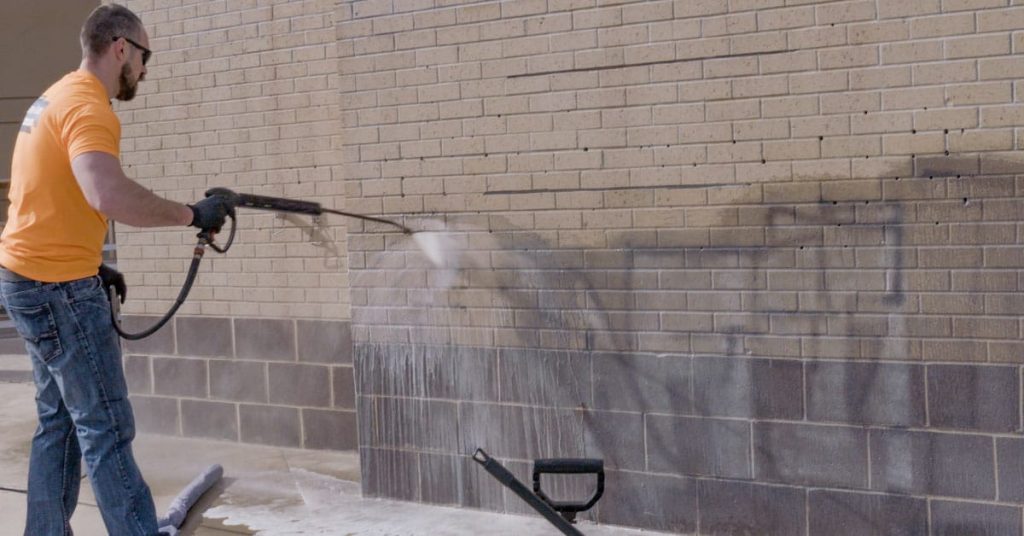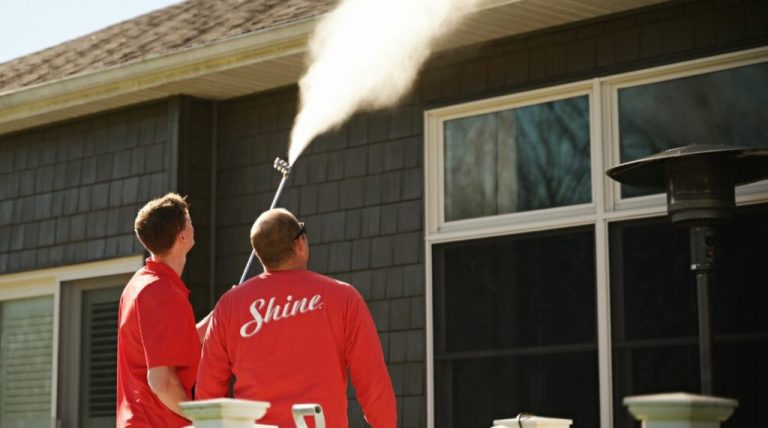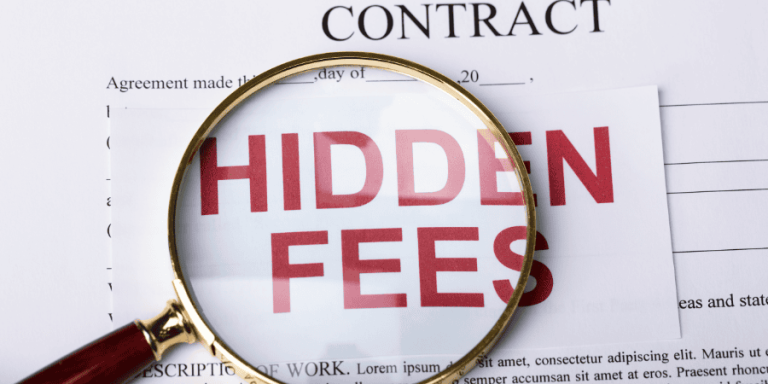
Brick and masonry surfaces have a timeless charm — think brick patios, stone retaining walls, or that beautiful old fireplace chimney. But over time, these materials can accumulate grime, algae, moss, and mildew, leaving them looking aged and uncared for. That’s where pressure washing comes in. 💦🧼
But not all pressure washing jobs are created equal. Brick and masonry surfaces require extra care, and hiring the right professional matters more than you might think. In this article, we’ll walk through everything you need to know about hiring a pressure washing company for brick or masonry surfaces. 🧱👷
🧠 Why Brick and Masonry Need Special Attention
Brick, stone, and other masonry materials may seem tough, but they’re surprisingly vulnerable to damage if handled improperly. Here’s why:
- Porous structure: These materials absorb moisture, which can lead to internal breakdown if not handled correctly.
- Mortar joints: High pressure can erode the mortar that holds bricks together.
- Aging: Older bricks are often softer and more brittle than newer ones.
- Efflorescence: That white powdery substance on bricks is delicate and can be worsened by improper washing.
So while pressure washing can restore their original beauty, it must be done the right way. 🚫💥
🔍 What to Look for in a Pressure Washing Company
When hiring a pro to clean your brick or stone surfaces, ask these questions up front:
1. Do you have experience with masonry?
This is non-negotiable. A technician experienced with vinyl siding may not understand the nuances of brickwork. Look for someone who can speak specifically about masonry-safe techniques.
2. What pressure settings do you use?
The answer should never be “full blast.” Masonry surfaces require lower PSI and wider spray angles to avoid damage.
3. Do you use soft washing?
Soft washing combines low-pressure water with specialized cleaning solutions — perfect for older bricks and detailed stonework.
4. Do you pre-treat or post-treat the surface?
A good company will apply solutions to kill moss or algae before or after cleaning to prevent regrowth.
⚠️ Risks of Hiring the Wrong Company
Hiring someone who doesn’t specialize in masonry can lead to:
- Cracked or chipped bricks 🧱💔
- Eroded mortar joints
- Water infiltration behind the surface
- Long-term structural damage
- Surface staining or striping
A botched job could cost more to repair than the original cleaning ever would have. That’s why it pays to hire right the first time. 💸👎
🧴 What’s the Right Method for Brick Cleaning?
The best companies will use a combination of soft washing and gentle rinsing, tailored to the type and condition of your masonry. Here’s what that process typically looks like:
- Inspection: Identify any cracked bricks, missing mortar, or mold growth.
- Pre-treatment: Apply an eco-friendly detergent or biocide to loosen grime and kill organic matter.
- Low-pressure rinse: Use less than 1,000 PSI with a fan nozzle to avoid damage.
- Post-treatment (optional): Apply a sealer or algaecide for protection.
In some cases, especially with older buildings, hand scrubbing with brushes may be used in delicate areas. 🧽
🧱 Surfaces That Often Benefit from This Service
If you’re unsure whether you need to clean your brick or stone surfaces, here are some common areas where pressure washing makes a visible impact:
- Brick patios and walkways 🧹
- Stone garden walls and planters
- Chimneys
- Retaining walls
- Brick house siding
- Brick steps or staircases
- Masonry fences or gates
Cleaning these areas not only boosts curb appeal but also extends the life of the materials by removing harmful growth. 🌿✨
💵 How Much Does It Cost?
Pricing depends on surface size, degree of buildup, and accessibility. Here’s a rough breakdown:
- Small patio or wall: $100–$250
- Full brick home exterior: $300–$800
- Add-on service with house wash: +$100–$200
If your surface needs repair before cleaning, like tuckpointing or brick replacement, that will add to the cost — but a good company should point this out during their estimate. 💬
🌎 Eco-Friendly Considerations
Worried about chemicals? Many pressure washing companies offer biodegradable detergents that are safe for brick, pets, and plants. Ask about:
- Runoff containment
- Safe pre-treatment sprays
- Water usage and conservation
- Nearby landscaping protection 🌱💧
Responsible companies won’t just make your brick clean — they’ll leave the rest of your property untouched and unharmed.
🛑 Avoid These Red Flags
When talking to potential contractors, watch out for:
🚩 Vague answers about technique
🚩 No insurance or licensing
🚩 “One-size-fits-all” pricing
🚩 No mention of masonry experience
🚩 Use of bleach without neutralizing rinse
These are signs that they might cut corners or lack the experience to handle your masonry safely.
✅ Final Checklist Before Hiring
Before signing anything, make sure you:
✔️ Get a written quote
✔️ Review their experience with brick/masonry
✔️ Ask about insurance
✔️ Clarify pressure levels and chemicals used
✔️ Request before-and-after photos or references
It’s worth being thorough. A little homework now can save you a lot later. 📋
🧼 Final Thoughts
Hiring a pressure washer for brick or masonry cleaning can be one of the best ways to restore your property’s beauty — but only when done right. Choose a company that understands the delicate balance of power, water, and technique. 🏡💦
Whether it’s reviving a mossy patio, cleaning soot off a chimney, or freshening up an old brick facade, professional pressure washing can make your masonry shine — without damage, without worry, and without regret. 👌



